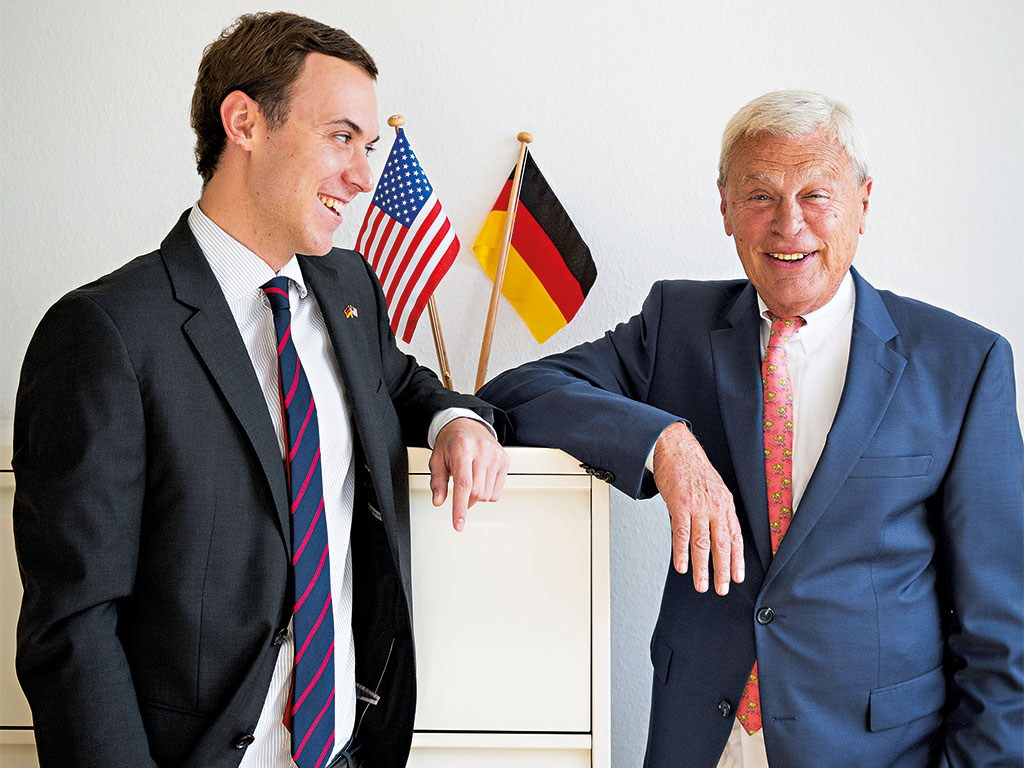
Although political and economic uncertainty may discourage European businesses from launching a US subsidiary right now, with expert support companies have a great chance to make a big impression. European CEO spoke to gatc CEO and founder Gerd Kichniawy and Executive Vice President Maximilian Kichniawy about how working with a trusted business process outsourcing company can make for a smooth expansion.
Why do foreign companies struggle more in the US market than elsewhere, such as Asia?
GK: Our experience is that companies prepare differently for those markets. The cultural differences of Asia are obvious and, because of that, companies approach these markets more professionally than the US. We created a metaphor with which we try to explain the differences: the US iceberg. We think we know the US market, we think we know the culture from TV shows and Hollywood movies, we think we know the American people because they look similar to Europeans, and we might know the US as a tourist or export country. These issues are above the water, so to speak. But, as we know, the bulk of the iceberg cannot be seen, and lies below the surface of the water: a different legal system which emphasises the importance of contracts; a different banking system; different employee rights; 50 independent states with different rules, and different standards and norms.
Has political uncertainty dampened the interest of companies looking to expand to the US?
MK: Actually, from my point of view, the opposite is the case. At present, we are experiencing an appreciable increase in requests for our services in the US. More and more European companies are currently either looking to expand their business to the US market, or to intensify existing US business relationships. A lot of foreign companies nowadays realise the obvious limits of only exporting, and want to establish their own local subsidiary, emphasising their long-term commitment to the US market. Because of its global importance, the US dominates the press, but if we take a look at Europe we also find a lot of factors that contribute to the uncertainty of companies doing business within our borders.
A lot of foreign companies nowadays realise the obvious limits of only exporting, and want to establish their own local subsidiary
On the other hand, if we take a look at the facts regarding the US market, the share of US sales is generally increasing. The German DAX companies, for example, made an average of 25 percent of their revenues in the US in the previous fiscal year. This helps in other ways, such as scattering currency risks, for example. The US just generated a GDP of more than $17trn, representing more than a quarter of the world’s economy. This confirms what we have been telling our clients for decades: as an innovative SME, your goal has to be to make at least the same revenue in the US that you generate in the whole of Europe.
How can gatc help European companies enter the US market?
GK: I founded gatc in Atlanta, Georgia, offering SMEs a fully functional local US infrastructure, including employees, for their US subsidiaries. This concept would nowadays be described as ‘business process outsourcing’.
We have developed a market entry service, which combines theory and practical experience – the practical product and market test. Generally, we start by conducting market research, estimating the market size, identifying competitors, analysing pricing and service offerings, locating the company’s target group and so on. After a short period of time, we then further assess the potential for the business and start phase two, which begins with founding a US company and gaining practical experience. The advantage of this practical approach is that the outcome is by far more valuable than just theoretical market research.

